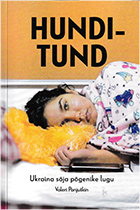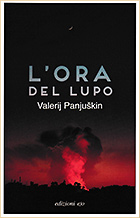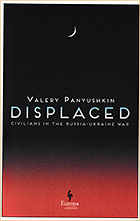Valery Panyushkin
The Hour of the Wolf
A book about the victims of the Russian invasion of Ukraine
Proposal
Rights sold to
- Europa Editions, USA
- Ersatz, Sweden
- Edizioni e/o, Italy
- Tänapäev, Estonia
Reporting from the Ukrainian city of Nikolaev under siege, the fantastic Russian journalist Yelena Kostyuchenko was asked in an interview how long she’d been traveling around Ukraine before actually coming upon a war zone. Lena replied: “You misunderstand what war is. War isn’t just firing cannons and launching rockets, it’s the destruction of human lives.”
This book will be about the collapse of human lives.
I believe that it is a Russian who should write such a book (and that it should be one of many, of course) as the first contribution to the repentance and reparation, which Russia must pay to Ukraine for harm caused.
Everyone has seen photos of refugees and the number of refugees is reported by the UN Commissioner, but the details of the lives of refugees are not known to many people, though they are invariably worthy of note, whether it’s Svetlana Alexievich or Khaled Hosseini writing about them.
What exactly made you flee? Why were you hiding in the basement yesterday, but are fleeing today? What do you especially miss about the home you abandoned? Who convinced you to stay? How exactly are humanitarian corridors arranged? How are seats allocated on the train or bus? What do children ask and how can you answer them? What did you talk about with fellow travelers? How did you manage to live along the way? Whom did you meet? Who helped you? Who was indifferent to you? How did the enemy soldiers behave? What about your country’s? Does love remain or does fear override all other feelings? Did your husband escort you to the border, then head back? What did the moment of separation look like? How did you cross the border? Who met you there? How did they accommodate you? How were you received? What opportunities did they give you? What were people hoping for?
These and other questions about the life of refugees are answered by dozens of real people from different walks of life in the book––a housewife, a retired welder, a professor, a doctor, a tram driver, a schoolgirl…
In addition to the details of the life of a refugee, these people recount also their own personal impressions––what they were thinking about and what they felt, what conclusions they made about life, what they now dream about…


